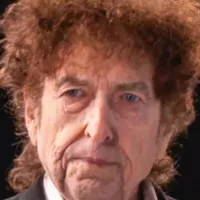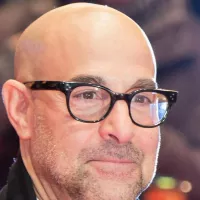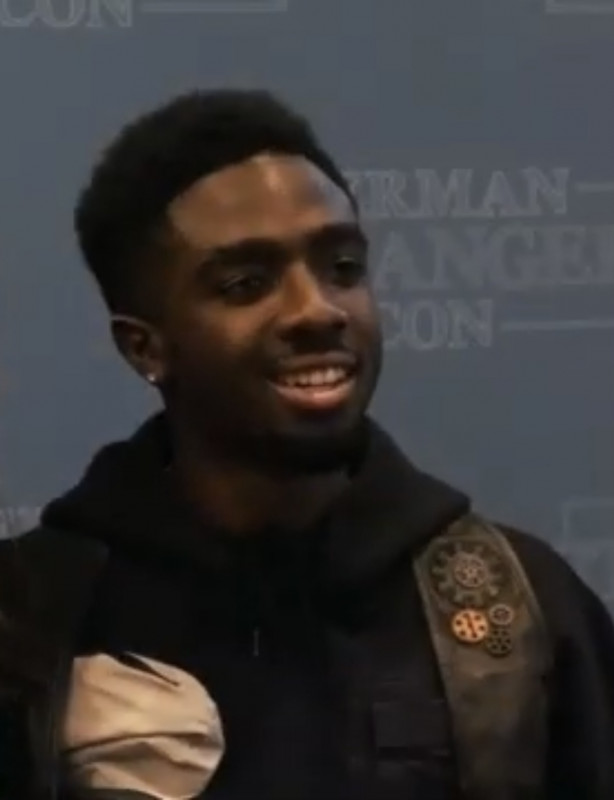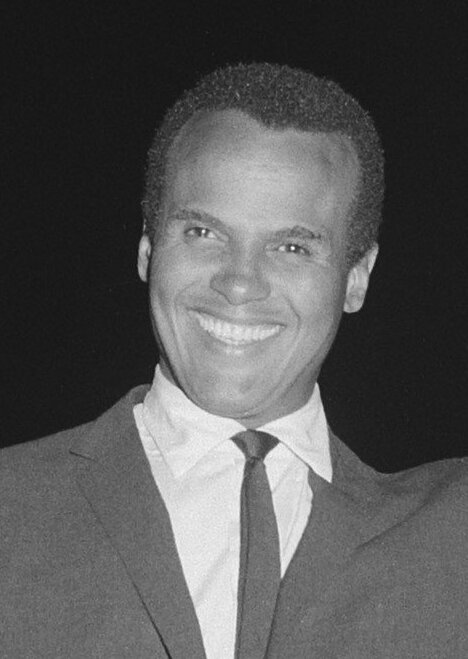Harry Belafonte was a prominent American singer, actor, and civil rights activist. He is best known for popularizing calypso music internationally during the 1950s and 1960s. His album *Calypso* (1956) achieved groundbreaking success as the first LP by a single artist to sell over a million copies. Belafonte leveraged his platform to advocate for civil rights, making him a significant figure in both the entertainment industry and social justice movements.
1900: Birth of Harry Belafonte Sr.
In 1900, Harold George Bellanfanti Sr., Harry Belafonte's father, was born.
1906: Birth of Melvine Love
In 1906, Melvine Love, Harry Belafonte's mother, was born.
March 1, 1927: Harry Belafonte Born
On March 1, 1927, Harold George Bellanfanti Jr., later known as Harry Belafonte, was born in Harlem, New York.
1928: Birth of Julie Robinson
Harry Belafonte's second wife Julie Robinson was born in 1928.
1932: Move to Jamaica
In 1932, Harry Belafonte moved to Jamaica to live with one of his grandmothers.
1948: Marriage to Marguerite Byrd
In 1948, Harry Belafonte married Marguerite Byrd.
1949: Launched recording career
In 1949, Harry Belafonte launched his recording career as a pop singer on the Roost label.
April 27, 1953: Recorded "Matilda"
On April 27, 1953, Harry Belafonte recorded "Matilda", which became his signature audience participation song.
1953: Moved to East Elmhurst, Queens
In 1953, Belafonte moved from Washington Heights, Manhattan, into a white neighborhood in East Elmhurst, Queens.
1953: First Film Role in Bright Road
In 1953, Harry Belafonte had his first film role in "Bright Road" where he supported the female lead, Dorothy Dandridge.
1954: Refused to Perform in the American South
From 1954, Belafonte refused to perform in the American South in protest against racial prejudice.
1954: Starred in Carmen Jones
In 1954, Belafonte starred alongside Dorothy Dandridge in Otto Preminger's hit musical "Carmen Jones", though his singing was dubbed by an opera singer.
1954: Tony Award
In 1954, Harry Belafonte received a Tony Award for his participation in the Broadway revue John Murray Anderson's Almanac.
1954: Cast Member in Broadway Musical
In 1954, Harry Belafonte was a cast member of the Broadway musical revue and sketch comedy show John Murray Anderson's Almanac.
1955: King Arrested for Montgomery Bus Boycott
In 1955, After King had been arrested for his involvement in the Montgomery bus boycott, he began traveling to Northern cities to spread awareness and acquire donations for those struggling with social segregation and oppression in the South. The two met at the Abyssinian Baptist Church in Harlem, New York, in March of the following year.
1955: Starred in "3 for Tonight"
In 1955, Harry Belafonte starred in the Broadway revue "3 for Tonight" with Gower Champion.
1955: Lord Melody Recorded "Mama Look at Bubu"
In 1955, Lord Melody originally recorded the comedic tune "Mama Look at Bubu", also known as "Mama Look a Boo-Boo", which Harry Belafonte later sang.
1956: Performed Banana Boat Song
Harry Belafonte's "Banana Boat Song" from 1956 was performed at his 93rd birthday celebration in 2020.
1956: Release of the Calypso Album
In 1956, Harry Belafonte released his breakthrough album "Calypso", which became the first LP by a single artist to sell a million copies.
1956: Calypso album breakthrough
In 1956, Harry Belafonte's album "Calypso" became the first LP to sell more than one million copies in a year.
March 8, 1957: Marriage to Julie Robinson
On March 8, 1957, Harry Belafonte married Julie Robinson.
March 1957: "Banana Boat Song" release
In March 1957, the "Banana Boat Song" was released in the United Kingdom and spent ten weeks in the top 10 of the UK singles chart, reaching a peak of number two.
1957: Starred in Island in the Sun
In 1957, Belafonte starred in "Island in the Sun", a (then) controversial film hinting at an affair between his character and Joan Fontaine's.
1957: Separation from Marguerite Byrd
In 1957, Harry Belafonte and Marguerite Byrd separated when Byrd was pregnant with Shari.
1958: Joined Youth March for Integrated Schools
In 1958, Belafonte joined Martin Luther King Jr. and his wife, Coretta Scott King, during the Washington D.C. Youth March for Integrated Schools.
1958: Bought an Apartment Building
In Fall 1958, Belafonte bought the apartment building where he was refused to live and turned it into a co-op.
1959: Starred in and Produced Odds Against Tomorrow
In 1959, Belafonte starred in and produced Robert Wise's "Odds Against Tomorrow" through his company HarBel Productions, playing a bank robber teamed with a racist partner.
1959: Supported the African American Students Foundation
In 1959, Belafonte was a supporter of the African American Students Foundation, which gave a grant to Barack Obama Sr. to study at the University of Hawaii.
1959: Starred in Tonight With Belafonte
In 1959, Harry Belafonte starred in "Tonight With Belafonte", a nationally televised special.
June 1960: Kennedy and King met
After much convincing from Belafonte, Kennedy and King would later meet in June 1960–the two men negotiated a deal that if Nixon became the nominee for the Republican party, Belafonte would support Kennedy's presidential pursuits.
1960: Appeared in Campaign Commercial for Kennedy
In 1960, Belafonte appeared in a campaign commercial for Democratic presidential candidate John F. Kennedy and performed at Kennedy's inaugural ball.
1960: Received Grammy Award for "Swing Dat Hammer"
In 1960, Harry Belafonte received a Grammy Award for the album "Swing Dat Hammer".
1960: Recorded live album at Carnegie Hall
In 1960, Harry Belafonte recorded a live album at Carnegie Hall, which was a critical and commercial success.
1960: Won Emmy for Revlon Revue
In 1960, Harry Belafonte won an Emmy for his performance on Revlon Revue.
1960: Kennedy Picked Belafonte to fill endorsement position
In the 1960 election, Belafonte was Kennedy's pick to fill the endorsement position after his win as the first Black man to receive an Emmy Award for his work on Tonight with Belafonte
1961: Contributed to the Freedom Rides
In 1961, Belafonte contributed to the Freedom Rides and supported voter registration drives.
1961: Ended Performance Boycott of the American South
In 1961, Belafonte ended his boycott of performing in the American South, which had started in 1954, as a protest against racial prejudice.
1961: Performed at Kennedy Inaugural Gala
In 1961, Harry Belafonte performed at President John F. Kennedy's inaugural gala.
1962: Released "Midnight Special" album
In 1962, Harry Belafonte's album "Midnight Special" was released, which included Bob Dylan as a harmonica player.
May 24, 1963: Attended Baldwin-Kennedy Meeting
On May 24, 1963, Belafonte met with fifteen others, including Robert Kennedy and James Baldwin, in Kennedy's Central Park South apartment for the Baldwin-Kennedy Meeting.
1963: Backed King and Helped Organize March on Washington
In 1963, Belafonte backed King in conversations with Robert F. Kennedy and helped organize the March on Washington, also providing for King's family.
1964: Supported Lyndon B. Johnson for President
After Kennedy's assassination, Belafonte supported Lyndon B. Johnson for the 1964 United States presidential election.
1964: Bankrolled the Student Nonviolent Coordinating Committee
During the Mississippi Freedom Summer of 1964, Belafonte bankrolled the Student Nonviolent Coordinating Committee, flying to Mississippi with Sidney Poitier and $60,000 in cash.
1964: Last Top 40 Album
In 1964, Harry Belafonte's album "Belafonte at The Greek Theatre" was his last album to appear in Billboard's Top 40.
1965: Grammy Award for "An Evening with Belafonte/Makeba"
In 1965, Harry Belafonte received a Grammy Award for the album "An Evening with Belafonte/Makeba".
June 3, 1966: Belnem Construction Begins
On June 3, 1966, construction began on Belnem, a luxurious private community on Bonaire, created as a joint venture between Belafonte and Maurice Neme.
1967: Released "A Strange Song"
In 1967, Harry Belafonte released his last hit single, "A Strange Song", which peaked at number 5 on the adult contemporary music charts.
1967: First Non-Classical Artist at SPAC
In 1967, Harry Belafonte was the first non-classical artist to perform at the Saratoga Performing Arts Center (SPAC) in Upstate New York.
September 29, 1968: Taped Appearance on The Smothers Brothers Comedy Hour
On September 29, 1968, Belafonte taped an appearance on an episode of "The Smothers Brothers Comedy Hour" performing a controversial Mardi Gras number intercut with footage from the 1968 Democratic National Convention riots.
1968: Appeared on Petula Clark primetime television special on NBC
In 1968, Belafonte appeared on a Petula Clark primetime television special on NBC. Clark smiled and briefly touched Belafonte's arm, which prompted complaints.
1968: Guest hosted The Tonight Show
In 1968, Harry Belafonte guest hosted The Tonight Show, with guests including Martin Luther King Jr. and Senator Robert F. Kennedy.
1971: Released "Calypso Carnival"
In 1971, Harry Belafonte's fifth and final calypso album, "Calypso Carnival", was released by RCA.
1972: Appeared in Buck and the Preacher
In 1972, Belafonte appeared in more films, one of which was "Buck and the Preacher" with Poitier.
1974: Appeared in Uptown Saturday Night
In 1974, Belafonte appeared in more films, including "Uptown Saturday Night" with Poitier.
1974: End of RCA contract
In 1974, Harry Belafonte ended his contract with RCA Victor, after recording regularly for the label since 1953.
1974: Final album for RCA released
In 1974, Harry Belafonte's recording activity slowed down after releasing his final album for RCA.
1977: Released "Turn the World Around"
In 1977, Columbia Records released the album "Turn the World Around", with a strong focus on world music.
1978: Guest Starred on The Muppet Show
In 1978, Harry Belafonte appeared as a guest star on an episode of The Muppet Show, where he performed "Day-O" and "Turn the World Around".
1979: Joined Royal Winnipeg Ballet Board
In 1979, Harry Belafonte served on the Royal Winnipeg Ballet's board of directors.
December 1984: Created "We Are the World"
In December 1984, Harry Belafonte created the American benefit single for African famine relief, "We Are the World", with various artists.
1984: Produced Beat Street
In 1984, Belafonte produced and scored the musical film "Beat Street", dealing with the rise of hip-hop culture, and produced its gold-certified soundtrack.
1985: Helped Organize "We Are the World" and Performed at Live Aid
In 1985, Belafonte helped organize the Grammy Award-winning song "We Are the World" and performed in the Live Aid concert.
1986: Award of Appreciation
In 1986, the American Music Awards named "We Are the World" "Song of the Year" and honored Harry Belafonte with the Award of Appreciation.
1987: Appointed UNICEF Goodwill Ambassador
From 1987 until his death, Belafonte was a UNICEF Goodwill Ambassador.
1987: Master of Ceremonies at Reception for Oliver Tambo
In 1987, Belafonte served as the master of ceremonies at a reception honoring Oliver Tambo, the president of the African National Congress, at Roosevelt House, Hunter College, in New York City.
1988: Released "Paradise in Gazankulu"
In 1988, Harry Belafonte released "Paradise in Gazankulu", his first album of original material in over a decade, containing protest songs against apartheid.
1988: Death of Melvine Love
In 1988, Melvine Love, Harry Belafonte's mother, passed away.
1988: Songs Featured in Beetlejuice
In 1988, four of Belafonte's songs, including "Day-O" and "Jump in the Line (Shake, Senora)", were featured in the film "Beetlejuice".
1989: End of Royal Winnipeg Ballet Board Service
In 1989, Harry Belafonte's service on the Royal Winnipeg Ballet's board of directors came to an end.
May 1990: Performed at Jim Henson's Memorial Service
In May 1990, Harry Belafonte performed "Turn the World Around" at Jim Henson's memorial service.
1990: Death of Harry Belafonte Sr.
In 1990, Harold George Bellanfanti Sr., Harry Belafonte's father, passed away.
1993: Unedited Smothers Brothers Comedy Hour Broadcast
In 1993, the full unedited content of Belafonte's appearance on "The Smothers Brothers Comedy Hour" was broadcast as part of a complete syndication package.
1994: Embarked on Mission to Rwanda
In 1994, Belafonte embarked on a mission to Rwanda and launched a media campaign to raise awareness of the needs of Rwandan children.
1994: Received National Medal of Arts
In 1994, Harry Belafonte received the National Medal of Arts.
1995: Starred in White Man's Burden
In 1995, Belafonte starred in a major film, appearing with John Travolta in the race-reverse drama "White Man's Burden".
1996: Diagnosed with Prostate Cancer
Belafonte had been involved in prostate cancer advocacy since 1996, when he was diagnosed and successfully treated for the disease.
1996: Starred in Kansas City
In 1996, Belafonte starred in Robert Altman's jazz age drama "Kansas City", which earned him the New York Film Critics Circle Award for Best Supporting Actor.
1997: Released "An Evening with Harry Belafonte and Friends"
In 1997, Harry Belafonte released "An Evening with Harry Belafonte and Friends", a soundtrack and video of a televised concert.
October 1998: Contributed to Letter to My Grandchild
In October 1998, Belafonte contributed a letter to Liv Ullmann's book Letter to My Grandchild.
1999: Starred in Swing Vote
In 1999, Belafonte starred as an Associate Justice of the Supreme Court of the United States in the TV drama "Swing Vote".
1999: Meeting with Cuban Rap Community and Fidel Castro
In 1999, Harry Belafonte met with representatives of the Cuban rap community before meeting with Fidel Castro. This meeting resulted in Castro's approval and the Cuban government's incorporation of rap into Cuban culture.
2000: Grammy Lifetime Achievement Award
In 2000, Harry Belafonte won a Grammy Lifetime Achievement Award.
September 11, 2001: Today Show Interview
On September 11, 2001, Harry Belafonte appeared on the Today Show to promote "The Long Road to Freedom" album, interviewed just before the first plane hit the World Trade Center.
2001: Visited South Africa to Support HIV/AIDS Campaign
In 2001, Belafonte visited South Africa to support the campaign against HIV/AIDS.
October 10, 2002: Belafonte refers to Malcolm X
On October 10, 2002, Belafonte, during an interview with Ted Leitner for San Diego's 760 KFMB, referred to Malcolm X.
2002: Grammy Nominations for "The Long Road to Freedom"
In 2002, "The Long Road to Freedom: An Anthology of Black Music" was nominated for multiple Grammy Awards.
2002: Received Africare's Humanitarian Service Award
In 2002, Africare awarded Belafonte the Bishop John T. Walker Distinguished Humanitarian Service Award for his efforts.
2003: Belafonte reflects on meeting with Fidel Castro
In a 2003 interview, Belafonte reflected upon his 1999 meeting's influence on hip-hop's place in Cuban society.
2004: Belafonte suffered a stroke
In 2004, Belafonte suffered a stroke that affected his inner-ear balance.
2004: Traveled to Kenya to Stress Importance of Educating Children
In 2004, Belafonte traveled to Kenya to stress the importance of educating children in the region.
2004: Divorce from Julie Robinson
In 2004, Harry Belafonte and Julie Robinson divorced after 47 years of marriage.
2004: Awarded Domestic Human Rights Award
In 2004, Harry Belafonte was awarded the Domestic Human Rights Award in San Francisco by Global Exchange.
2005: "Turn the World Around" Included in Hymnal
In 2005, "Turn the World Around" was included in the Unitarian Universalist Association's hymnal supplement, Singing the Journey.
2005: Chávez initiates heating oil program
In 2005, Hugo Chávez initiated a program to provide cheaper heating oil for poor people in the United States, which Belafonte supported.
January 2006: Remarks at Arts Presenters Members Conference and Duke University
In January 2006, Belafonte referred to "the new Gestapo of Homeland Security" at the Arts Presenters Members Conference. Also in January 2006, during a Martin Luther King Jr. Day speech at Duke University, he stated that if he could choose his epitaph, it would read "Harry Belafonte, Patriot."
June 27, 2006: Received BET Humanitarian Award
On June 27, 2006, Belafonte received the BET Humanitarian Award at the 2006 BET Awards.
2006: Remarks on US Government at Duke University
During a Martin Luther King Jr. Day speech at Duke University in 2006, Belafonte compared the American government to the hijackers of the September 11 attacks.
2006: Appeared in Bobby
In 2006, Belafonte appeared in Emilio Estevez's ensemble drama about the assassination of Robert F. Kennedy, "Bobby", playing Nelson.
2006: Meeting with Hugo Chávez and Controversy
In January 2006, Belafonte met with Venezuelan president Hugo Chávez and stated that "millions of the American people support your revolution", which ignited a great deal of controversy. Hillary Clinton and AARP publicly distanced themselves from his comments.
October 19, 2007: Represented UNICEF on Norwegian Television
On October 19, 2007, Belafonte represented UNICEF on Norwegian television to support the annual telethon and helped raise a world record of $10 per Norwegian citizen.
December 2007: Keynote Address at ACLU and Awarded Civil Liberties Award
In December 2007, Belafonte gave the keynote address at the ACLU of Northern California's annual Bill of Rights Day Celebration and was awarded the Chief Justice Earl Warren Civil Liberties Award.
2007: Retired from Performing
In 2007, Harry Belafonte stated in an interview that he had retired from performing.
April 2008: Marriage to Pamela Frank
In April 2008, Harry Belafonte married Pamela Frank.
2011: Commented on the Obama Administration
In 2011, Belafonte commented on the Obama administration and the role that popular opinion played in shaping its policies.
2011: Sing Your Song Documentary and Memoir Published
In 2011, the Sundance Film Festival featured the documentary film "Sing Your Song" about Belafonte's contributions to the civil rights movement, and his memoir "My Song" was published.
December 9, 2012: Expressed Dismay Over Opposition to Obama's Policies
On December 9, 2012, Belafonte expressed dismay that many political leaders in the United States continued to oppose Obama's policies even after his reelection.
January 29, 2013: MLK Celebration Keynote Speaker
On January 29, 2013, Harry Belafonte was the keynote speaker and honoree for the MLK Celebration Series at the Rhode Island School of Design, speaking on the role of artists as activists.
February 1, 2013: Received the NAACP's Spingarn Medal
On February 1, 2013, Belafonte received the NAACP's Spingarn Medal.
2013: Grand Marshal of New York City Pride Parade
In 2013, Belafonte was named a grand marshal of the New York City Pride Parade alongside Edie Windsor and Earl Fowlkes.
January 11, 2014: Inducted into Phi Beta Sigma
On January 11, 2014, Harry Belafonte was inducted as an honorary member of Phi Beta Sigma fraternity.
March 2014: Honorary Doctorate from Berklee
In March 2014, Harry Belafonte was awarded an honorary doctorate from Berklee College of Music in Boston.
November 2014: Attended Revolution and Religion Dialogue
In November 2014, Belafonte attended “Revolution and Religion,” a dialogue between Bob Avakian and Cornel West at Riverside Church in New York City.
2014: Received Jean Hersholt Humanitarian Award
In 2014, Belafonte received the Jean Hersholt Humanitarian Award at the Academy of Motion Picture Arts and Sciences' 6th Annual Governors Awards.
2016: Endorsed Bernie Sanders in Democratic Primaries
In 2016, Belafonte endorsed Vermont U.S. senator Bernie Sanders in the Democratic primaries.
January 21, 2017: Honorary Co-chairman of the Women's March on Washington
On January 21, 2017, Belafonte was an honorary cochairman of the Women's March on Washington.
2017: Belnem Population in 2017
In 2017, Belnem was home to 717 people.
2017: Released "When Colors Come Together"
In 2017, Harry Belafonte released "When Colors Come Together", an anthology of some of his earlier recordings, produced by his son David.
2018: Final Film Appearance in BlacKkKlansman
In 2018, Belafonte made his final film appearance in Spike Lee's Academy Award-winning "BlacKkKlansman" as an elderly civil rights pioneer.
2019: Health Decline
From 2019, Belafonte's health began to decline.
March 1, 2020: Celebrated 93rd Birthday at Apollo Theater
On March 1, 2020, Harry Belafonte celebrated his 93rd birthday at Harlem's Apollo Theater in a tribute event.
2022: Inducted into Rock and Roll Hall of Fame
In 2022, Harry Belafonte was inducted into the Rock and Roll Hall of Fame in the Early Influence category.
April 25, 2023: Harry Belafonte Death
On April 25, 2023, Harry Belafonte passed away.
2024: Death of Julie Robinson
Harry Belafonte's second wife Julie Robinson died in 2024.
Mentioned in this timeline

Bernie Sanders is a prominent American politician currently serving as...

Barack Obama the th U S President - was the...

Martin Luther King Jr was a pivotal leader in the...

Hillary Diane Rodham Clinton is an American politician lawyer and...

John F Kennedy JFK was the th U S President...

Bob Dylan is a highly influential American singer-songwriter renowned as...
Trending

8 months ago Stanley Tucci faces wine tourism criticism; 'Tucci in Italy' gets renewed; trattoria impact.

10 months ago Madison Chock and Evan Bates Achieve Historic Ice Dance Title, Balancing Love and Career

James Rodr guez is a celebrated Colombian professional footballer known for his skills as an attacking midfielder or winger Currently...

6 months ago Luca Nardi faces Carlos Alcaraz in Cincinnati Open: Watch details and preview.
4 months ago Miranda Kerr and Evan Spiegel enforce surprising screen time rules for their children.

8 months ago Stranger Things Season 5: Release Date, Trailer, and Final Episodes Revealed Details
Popular

Kid Rock born Robert James Ritchie is an American musician...

Melania Trump a Slovenian-American former model has served as First...

XXXTentacion born Jahseh Dwayne Ricardo Onfroy was a controversial yet...

Thomas Douglas Homan is an American law enforcement officer who...

Instagram is a photo and video-sharing social networking service owned...

Jupiter is the fifth and largest planet from the Sun...
